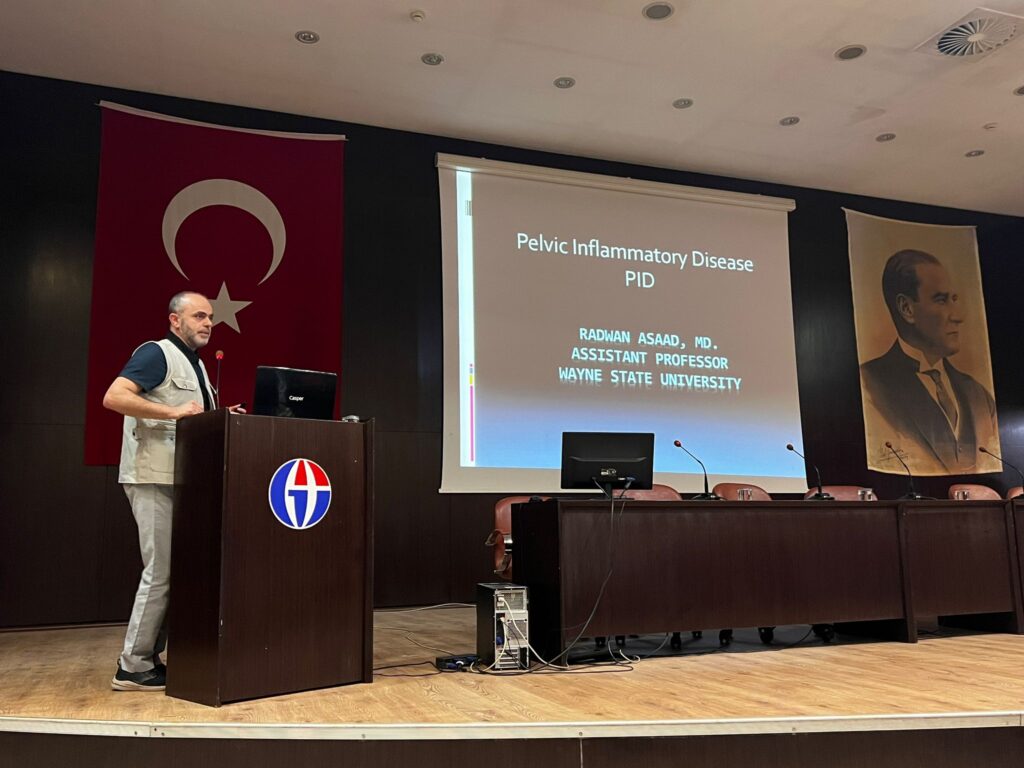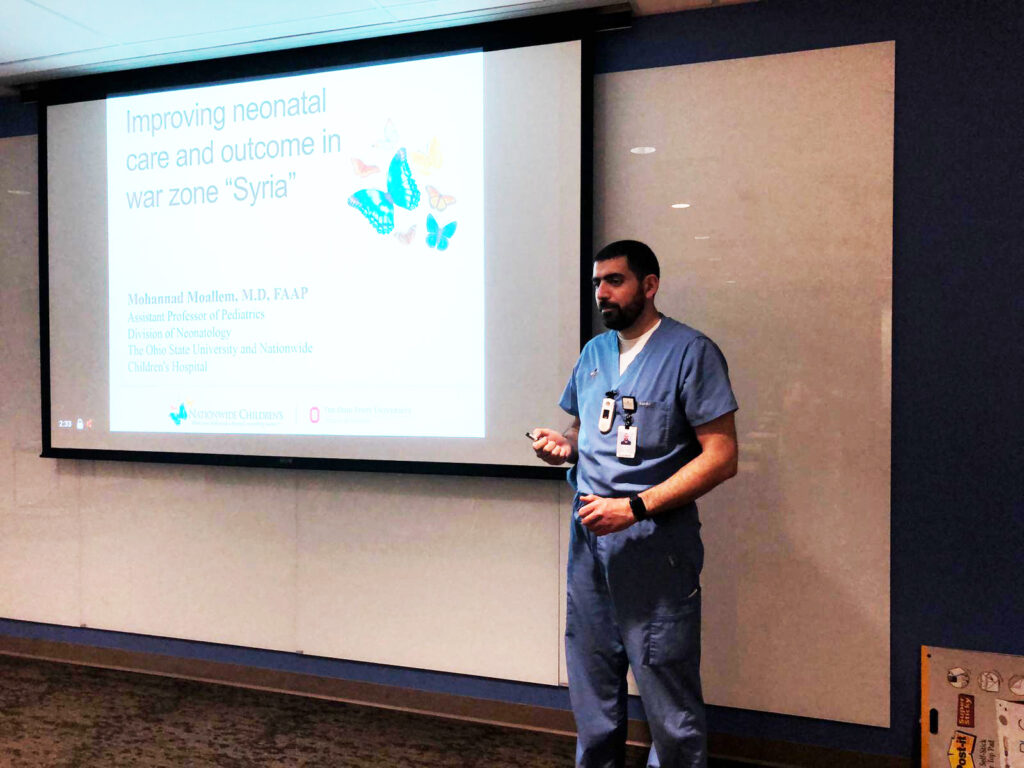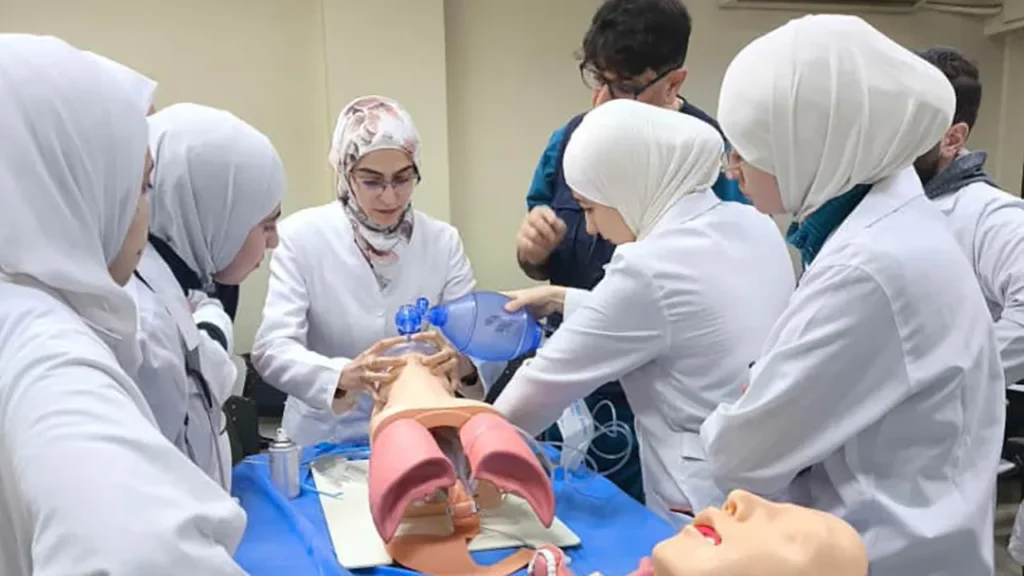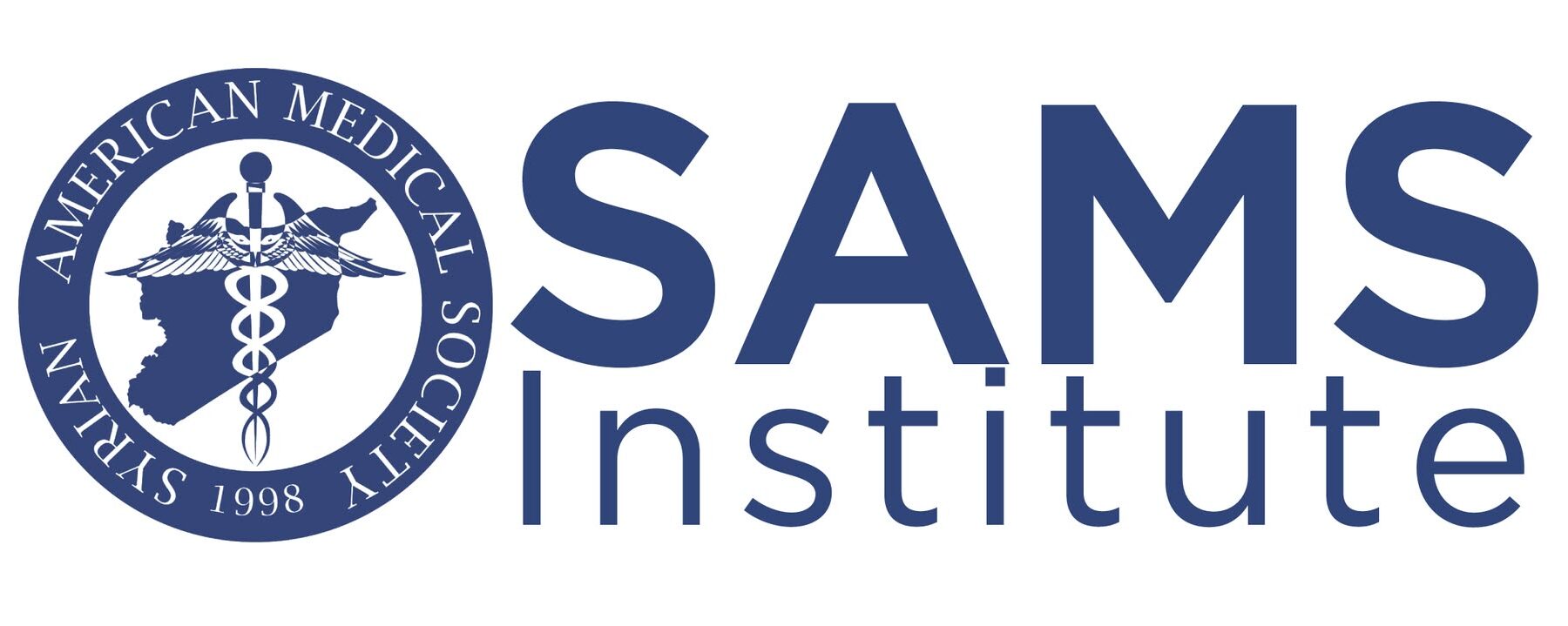
Building a stronger healthcare system
through education at every level
The SAMS Institute supports a full spectrum of medical education and training programs in Syria, from foundational coursework to advanced clinical and professional development. Each program is designed to meet the unique needs of students, residents, and healthcare professionals working in conflict-affected settings.
Postgraduate Medical Training Programs

In 2024, SAMS continues to offer its existing post-graduate medical education fellowships and residencies programs in adult and pediatric hematology/oncology, critical care, pathology and neurology, and expanded into new specialties including internal medicine, pulmonology, gastroenterology, nephrology, neuro ICU, GI and pediatric and adult cardiology. These programs seek to qualify and train general doctors to be specialists in their field of specialization. About 37 residents and fellows are currently enrolled in these programs.
These programs are conducted in 3 SAMS sponsored facilities: Al Ziraa academic, Bab Al Hawa, and Idlib Central Hospitals, while a cardiothoracic surgery fellowship is starting in Al Ziraa Hospital with additional rotation in Al Razi, Islamic Relief and Al Bab Hospital. Lastly, two doctors will begin their SAMS Radiation Oncology Residency Program at the King Hussein Cancer Center in Jordan. In 2024, SAMS congratulated six graduates from the Adult ICU fellowship program. These ICU physicians will now be employed in northern Syria to improve the healthcare system.
In 2025, SAMS is planning to launch new Residency and Fellowship Programs in OBGYN, Radiology, Endocrinology, Pediatric Neurology, Pediatric ICU, and Adult EP Cardiology.
Medical Education During Medical Missions
The Medical Missions organized by SAMS involved a diverse range of medical education activities aimed at advancing the knowledge and skills of healthcare professionals in northern Syria. Volunteering physicians from the United States and Europe organized the medical missions in northern Syria and included extensive hands-on and theoretical medical education. Sixteen hands-on sessions trained 269 specialized doctors and residents in procedures like Painless Delivery, ICU protocols, and neonatal neurological screenings. ICU rounds involved 161 multidisciplinary participants, covering protocols for neurology, pain, and gastrointestinal care. Six crash courses offered intensive knowledge in ICU, Retina, Nephrology, and more for 208 doctors and residents. Additionally, 215 doctors participated in on-site training in complex fields like Neuro-radiography and Cardiac surgery. Eighteen lecture sessions, attended by 925 residents and medical students, covered ICU, Cancer, and more foundational topics.

SAMS also hosted two conferences: the First Scientific Week in April 2024, with 609 professionals engaging in 47 lectures, and the Pediatrics Scientific Conference in September 2024, attended by 295 pediatricians and focusing on pediatric subspecialties like cardiology and neurology.
First Simulation Lab in Syria

In early 2024, SAMS established a cutting-edge simulation laboratory at Qah Hospital building in northwest Syria. This initiative will directly benefit over 220 healthcare professionals and students through specialized and recurring training, while indirectly enhancing the care of approximately 75,240 patients over six months. The project marks a significant leap toward improving clinical competencies of healthcare professionals and patient safety across the region. Thanks to generous support from Direct Relief, for their pivotal support in this transformative endeavor.
Basic Life Support (BLS), Advanced Cardiovascular Life Support (ACLS), and Pediatric Advanced Life Support (PALS) Training of Trainers (ToTs) trainings were conducted at the Simulation Lab to train local specialized healthcare workers in delivering these simulation-training sessions.
Additionally, simulation-training workshops on BLS were provided for staff at SAMS-supported health facilities as a mandatory requirement. Future plans include delivering ACLS simulation workshops for healthcare workers in the Emergency Room (ER) and Intensive Care Unit (ICU).
